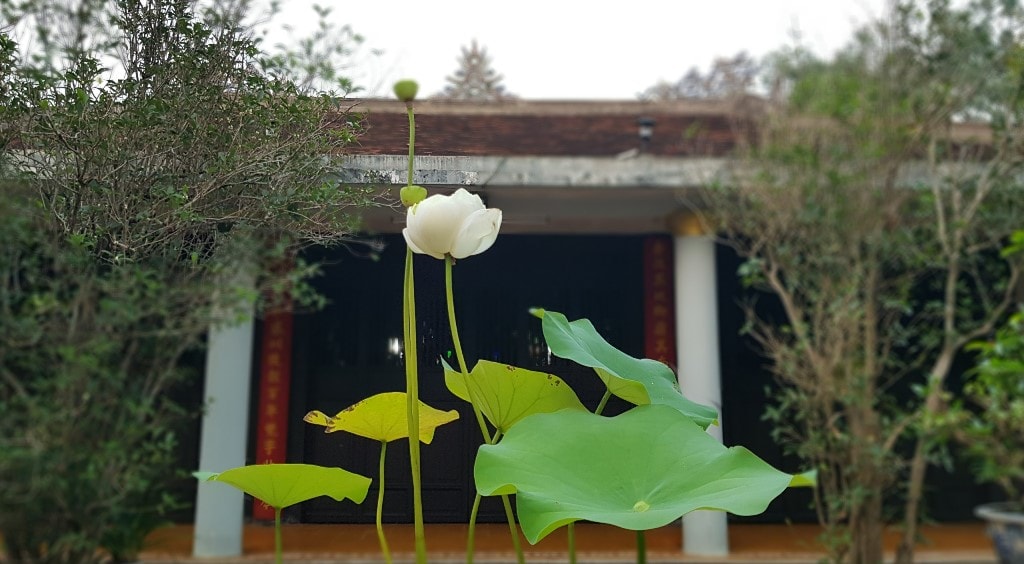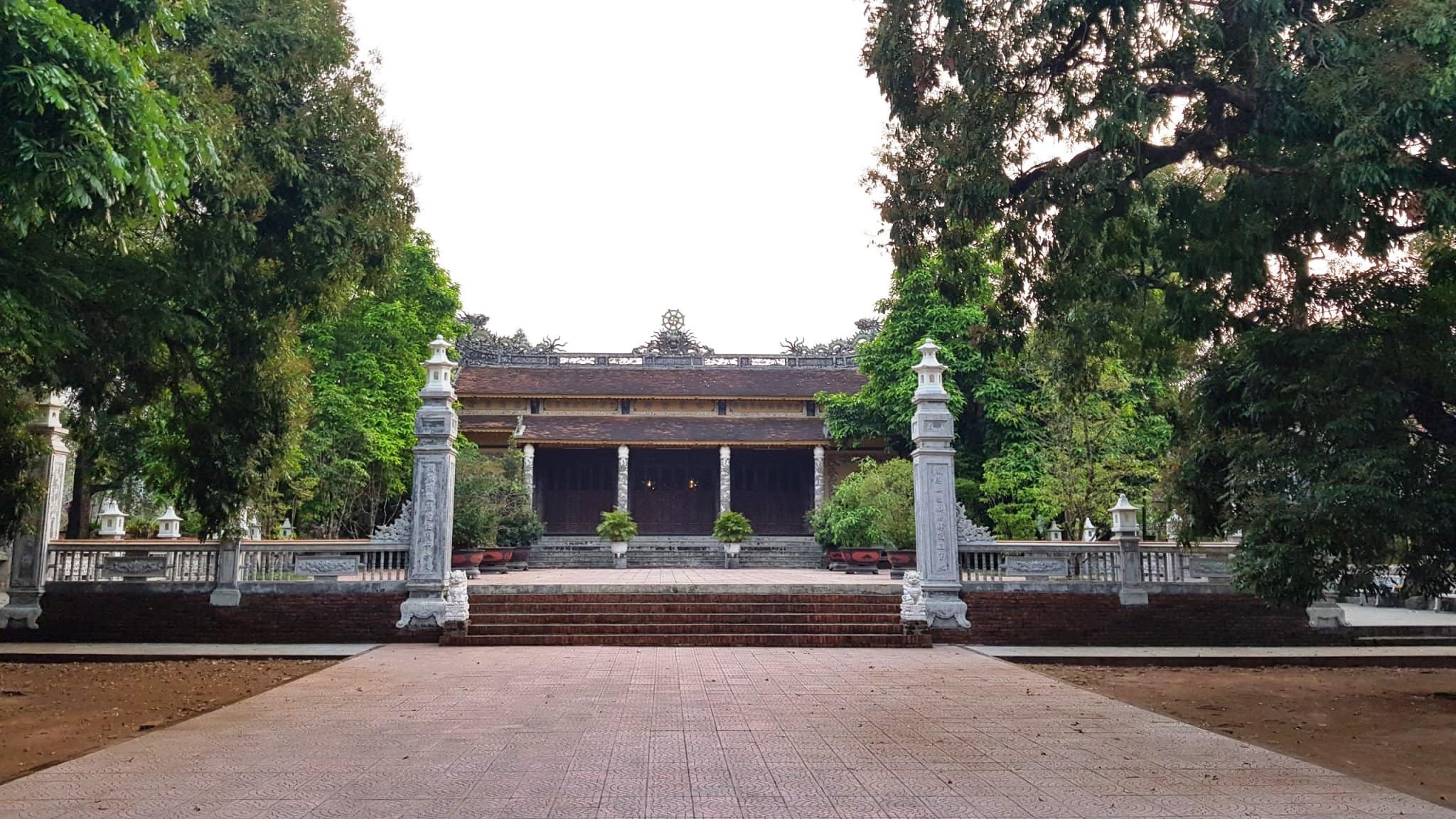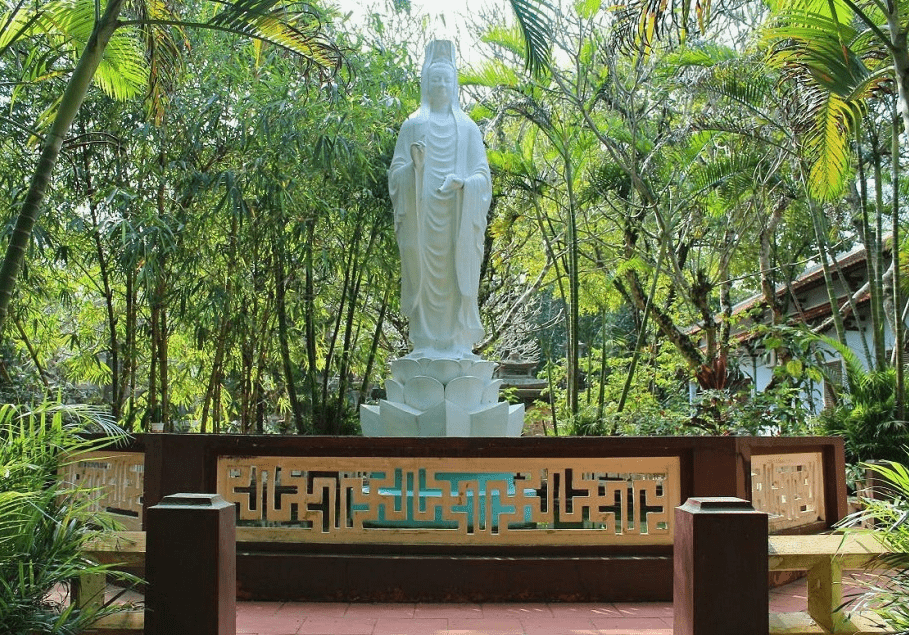Bao Quoc Pagoda- The Buddhist Center of Hue
Bao Quoc Pagoda is one of the oldest and sacred pagodas in Hue Imperial Capital. As you know, each pagoda covers the up and down history, delicate architecture as well as ancient stories.
It is known as the must-visit attraction in the spiritual tourist destination of Hue with beautiful landscape and quiet spaces.
Bao Quoc Pagoda Location
Located on Ham Long hill, Bao Quoc Street, Duc Ward, Hue City. Bao Quoc pagoda was built in the shape of Khau (Mouth) following the Nom language character by the Venerable Master Giac Phong in the 17th century.
During the reign of Le Du Tong King, Bao Quoc Pagoda Hue was named Ham Long Pagoda. In 1747, Lord Nguyen Phuc Khoat gave the pagoda a signboard “Sac Tu Bao Quoc Tu” which means Bao Quoc National pagoda.
The Pagoda History
In 1808, Gia Long emperor restored and built three relics including the Great Bell with a weight of 826 kg; 1.4 m high, diameter is 1.2 m and named the pagoda as Ham Long Thien Tho. Later on, because Gia Long mausoleum was named Thien Tho Tomb; so the Minh Mang emperor changed it back to Ham Long Pagoda. In 1824, Emperor Minh Mang restored the pagoda in a larger scale. In 1858, Emperor Tu Duc contributed to the restoration of the pagoda.
With a rich history from ancient times, to these days Bao Quoc Pagoda still retains everyone known as a peaceful and sacred place. In addition, the is not only a place of worship but also an important Buddism training center in Vietnam. In 1930, during the Buddhist revival movement; the pagoda made important contributions to Buddhism development.
How to visit?
To visit Hue Buddist pagodas, especially Bao Quoc Pagoda, you can ride a bike, drive a scooter with helmets, or book the Hue Buddhist Tour with Culture Pham Travel. Book the Hue Famous Pagoda Tour, you will have a chance to explore the hidden beauty of the most sacred and fabulous pagodas but also enjoy the best vegetarian meal.
Bao Quoc Pagoda Architecture
The total temple has a campus area of about 2 hectares. Looking from the outside to the pagoda is an impressive Tam Quan gate with ancient mosses, massive scale, several dozen high step ways. Right behind the Tam Quan Gate is a large courtyard with shady green trees, at the end of the yard is the main hall area.
The Main Hall area was built into three rooms with two lean-tos, with elaborate decorations, the pillars, the walls are all decorated with dragon motifs.
Inside the Main Palace area, is the solemn worship. In addition, at the foot of the pagoda’s hill, there is also a famous well, called Ham Long well, because the water in the well gushes out like a tornado, the water is clear, fragrant, and sweet, so people offered to the kings.
In the temple precinct, there is also Quan The Am Bodhisattva Monument, behind the pagoda is the temple tower, the tower of His Excellency Giac Phong, the ancestor of this ancient temple. Around the pagoda are perennial green trees, with wide foliage, so it is very cool and quiet.





Comments
Post a Comment